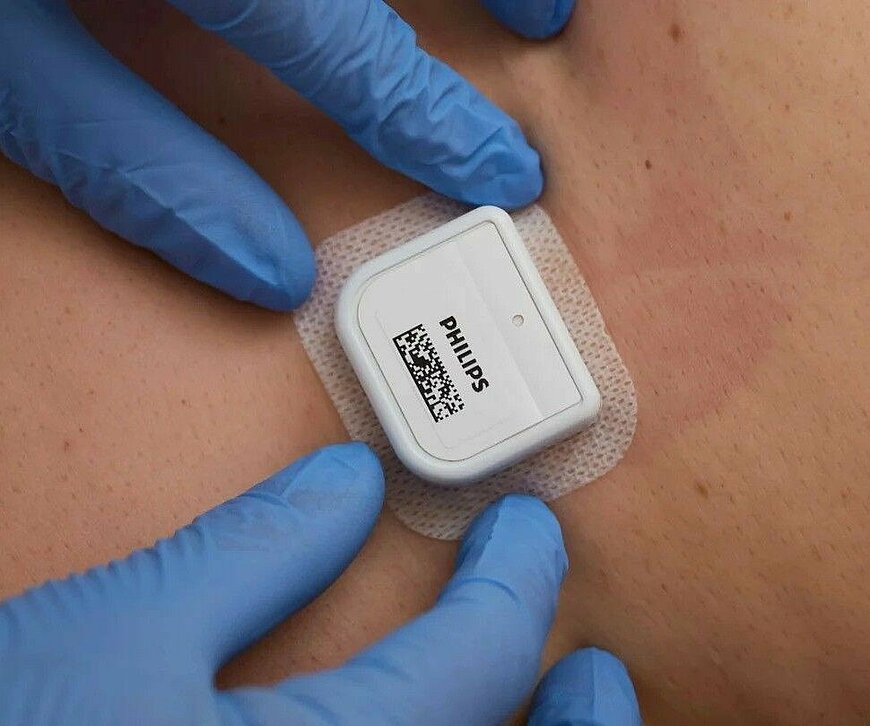Smart patch fills gaps in healthcare

The Catharina Hospital in Eindhoven has started a study on the use of smart plasters in the nursing department. The hospital is investigating whether this will allow nurses to spend less time on daily, manual measurements. The patch may be able to detect patients who suddenly deteriorate during their hospital stay. Catharina Hospital reports this in a press release.
Plaster on the chest
Over the next few months, all patients admitted to the surgical oncology department will have a patch placed on their chest upon entry. That smart patch will measure heart rate and breathing, among other things, every five minutes. That data is automatically sent securely to a data system.
Thus, a complication can possibly be spotted earlier. In addition, nurses no longer have to do those measurements themselves on the patient. This is now done three times a day. This time saving allows nurses to devote more time to other care tasks.
Three month trial
For the first three months, the data from the patches will be compared with the data that nurses collect manually from patients three times a day. After three months, if those data are found to match, nurses will stop taking the manual measurements. The study will also look at how patients experience the smart patch.
The smart patch is currently already being used with patients who have undergone gastric bypass surgery. They receive the patch after the operation so they do not have to stay in the hospital overnight. The patch sends data from home to the hospital every five minutes. Thus, patients in the home are continuously monitored. If complications arise, the patient is called and, if necessary, admitted to the hospital.
Brainport collaboration
Catharina Hospital is working closely with TU/e and Philips in this research. "This collaboration in the Brainport region is worth its weight in gold. All parties strive to be able to apply these solutions in daily practice as soon as possible," says professor and anesthesiologist Arthur Bouwman of Catharina Hospital. "Previously, we and Philips extensively tested and approved the smart patch to be used for patients with stomach reduction. This research is a logical next step to that."